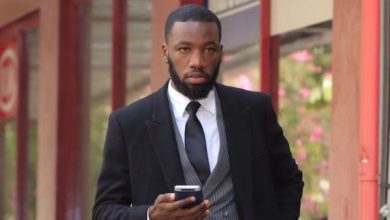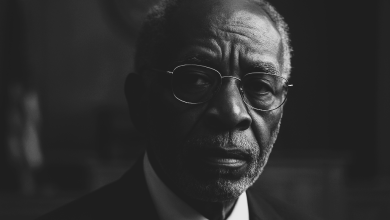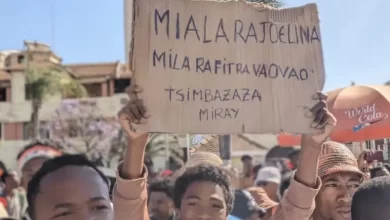Most Controversial Legal Battles in Africa – High-Profile Cases That Sparked Debate
Authored by: Bryan Miller

The African legal landscape has witnessed several high-profile cases that have shaped national and international discussions on justice, governance, and human rights. These cases, often marked by political intrigue, corporate battles, and social justice issues, have left lasting impacts on legal frameworks and public opinion. Here, we examine some of the most controversial legal battles that have sparked intense debate across the continent.
1. The Trial of Nelson Mandela (Rivonia Trial, 1963-1964) – South Africa
One of the most significant political trials in African history, the Rivonia Trial saw Nelson Mandela and other anti-apartheid activists charged with sabotage and conspiracy against the state. The case was a defining moment in South Africa’s struggle for freedom, with Mandela’s famous speech from the dock: “I am prepared to die.” The controversial trial led to life imprisonment sentences for Mandela and his co-accused, fueling global condemnation of apartheid and setting the stage for eventual change.
2. Laurent Gbagbo and the ICC Trial – Côte d’Ivoire
Former Ivorian President Laurent Gbagbo’s 2011 arrest and trial at the International Criminal Court (ICC) for crimes against humanity divided both legal and political analysts. Accused of orchestrating post-election violence after refusing to step down, Gbagbo’s trial raised concerns about selective justice at the ICC, particularly regarding African leaders. His eventual acquittal in 2019 further intensified debates on international legal mechanisms and their impact on African sovereignty.
3. The Omar al-Bashir ICC Indictment – Sudan
Omar al-Bashir became the first sitting head of state to be indicted by the ICC for alleged genocide, war crimes, and crimes against humanity in Darfur. His refusal to surrender to the court, combined with African Union resistance to the ICC’s role, fueled debates about the legitimacy of international legal interventions. The case remains a landmark in discussions on justice, accountability, and the limits of international law.
4. Jacob Zuma’s Corruption Trial – South Africa
Former South African President Jacob Zuma’s long-running corruption scandal, tied to arms deals and state capture, has been one of the most controversial legal sagas in Africa. His defiance of court orders and eventual imprisonment in 2021 for contempt of court led to nationwide unrest, exposing deep political and economic divisions. The case underscored the battle between political power and judicial independence in South Africa.
DON’T MISS THIS: Top African Lawyers in International Courts – Recognizing African Lawyers Influencing Global Law
5. The Kenyatta-Ruto ICC Case – Kenya
Kenyan leaders Uhuru Kenyatta and William Ruto faced charges at the ICC for their alleged roles in post-election violence in 2007-2008. The case ignited debates over whether the ICC was being used to target African leaders, with many critics arguing that the prosecution’s collapse due to witness interference demonstrated flaws in international justice systems. The case remains a reference point in discussions on political accountability in Africa.
6. Hissène Habré War Crimes Trial – Chad/Senegal
The trial of former Chadian dictator Hissène Habré in Senegal for war crimes, crimes against humanity, and torture was a groundbreaking moment in African legal history. The African Union-backed tribunal’s 2016 conviction of Habré was hailed as a victory for justice, proving that African courts could handle major human rights cases without relying on Western institutions.
7. Algeria’s Hirak Protest Trials – Algeria
The wave of protests in Algeria, known as the Hirak movement, led to numerous legal battles as authorities cracked down on activists, journalists, and opposition figures. High-profile cases, such as the prosecution of opposition leader Karim Tabbou, raised concerns about judicial independence and human rights in Algeria, with many calling for democratic reforms.
8. Zimbabwe’s Land Reform Cases – Zimbabwe
The legal battles surrounding Zimbabwe’s controversial land reform program, which involved the seizure of white-owned farms, were some of the most contentious in African legal history. The cases, both in local courts and international tribunals, led to rulings condemning Zimbabwe’s government for violating property rights. However, the political leadership often ignored court decisions, highlighting the tension between law and governance.
9. The Dangote Cement Dispute – Nigeria/Senegal
Africa’s richest man, Aliko Dangote, has been at the center of multiple legal disputes, but none as high-profile as the battle over his cement business in Senegal. The case, involving accusations of tax evasion, corporate sabotage, and political interference, exposed the complexities of doing business in Africa’s emerging markets.
10. Uganda’s LGBTQ+ Rights Battle – Uganda
Uganda’s anti-homosexuality laws have sparked global outrage and legal battles, including challenges in the country’s Constitutional Court. The striking down of a harsh anti-LGBTQ+ bill in 2014, and subsequent legal battles over new laws, continue to fuel debates on human rights, sovereignty, and cultural values in African legal systems.
Conclusion
These controversial legal battles highlight the evolving nature of justice in Africa, where law often intersects with politics, business, and human rights. While some cases have reinforced the strength of African legal institutions, others have exposed their limitations. As Africa continues to grow, the outcomes of such legal battles will shape the continent’s governance, international relations, and justice systems for generations to come.




